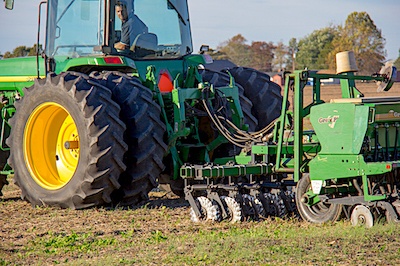
~ Press release provided by Virginia Farm Bureau Federation
RICHMOND — Virginia Farm Bureau Federation’s grassroots advocates are celebrating the advancement of agricultural legislation to support the commonwealth’s farmers in generating high-quality food and fiber.
Some of that legislation will have an impact on rural Virginians and other residents as well. In April, Gov. Glenn Youngkin completed action on 1,046 bills during the 2024 General Assembly session, signing 777 bills, amending 116 and vetoing 153. Bills and amendments addressed in 2024 include verified meat labeling, streamlining farm-to-school food opportunities and studying large-animal veterinarian shortages.
Youngkin signed legislation allowing for the creation of a Virginia Verified Meat certification, which prohibits labeling products as Virginia Verified Meat if they do not meet the definition of that term in the bill.
“This label is intended to help consumers to readily identify meat from livestock born, bred, raised and processed in Virginia,” said Martha Moore, senior vice president of VFBF governmental relations. In addition, she said, “it will also help our school systems to identify local meat products when making purchasing decisions.”
Youngkin also signed a bill establishing a farm-to-school program task force that will aim to increase student access to high-quality farm-to-school programs throughout the commonwealth. Farm-to-school programs strive to increase student access to school meals prepared with locally produced foods. They also involve experiential learning opportunities relating to local food and agriculture, including school and community garden programs and farm visits.
“This program update will go a long way in getting locally grown food into Virginia schools, and exposing more youth to agricultural production,” Moore noted.
A nationwide downward trend in large animal veterinarians also persists in Virginia, causing concern for a safe food supply, and contributing to a decline in the economic vitality of rural communities. A joint resolution to study the shortage of large animal veterinarians is intended to result in recommendations for appropriate legislation over the next two General Assembly sessions.
The farm veterinarian shortage, exacerbated by soaring tuition costs and low pay in rural regions, affects livestock farmers as well as rural economies.
“The state veterinarian has identified areas in the state that are in part veterinary deserts,” Moore continued. “For horse and livestock owners in those areas, they may not be able to wait for a vet to travel three hours depending on the medical condition of their animal. And because agriculture is the foundation of many rural economies, farmers not having access to large veterinarians means that local food sources are in danger of not existing.”
•••
RELATED ARTICLES
Wet weather continues with above average rainfall in May
2022 Census of Agriculture finds agricultural sales outpace loss of Virginia farms
Decline in farmland across U.S. worrying farmers, agricultural organizations
2022 Ag Census shows Page County ranks fifth in Virginia’s agricultural output at $205 million



Be the first to comment